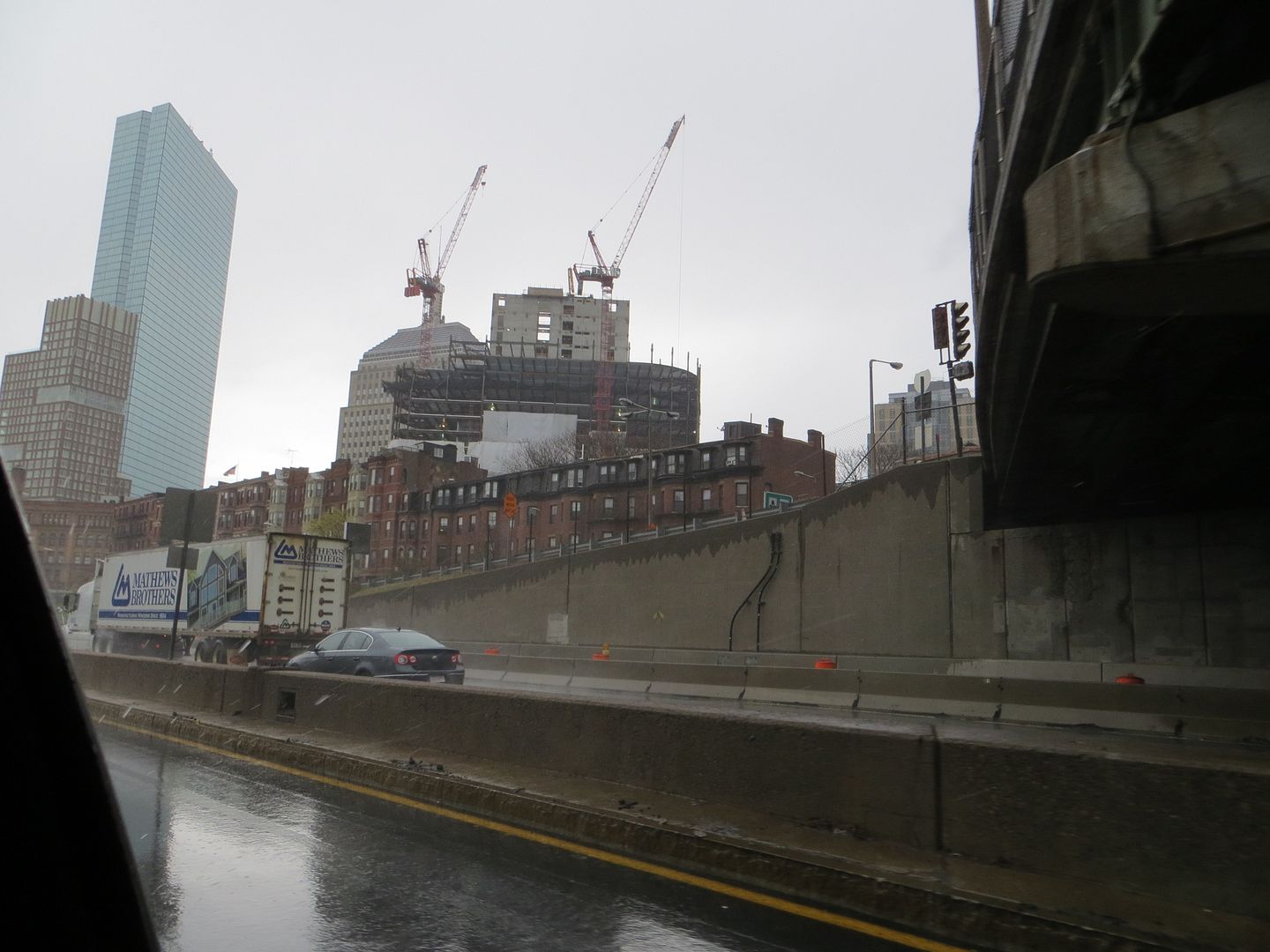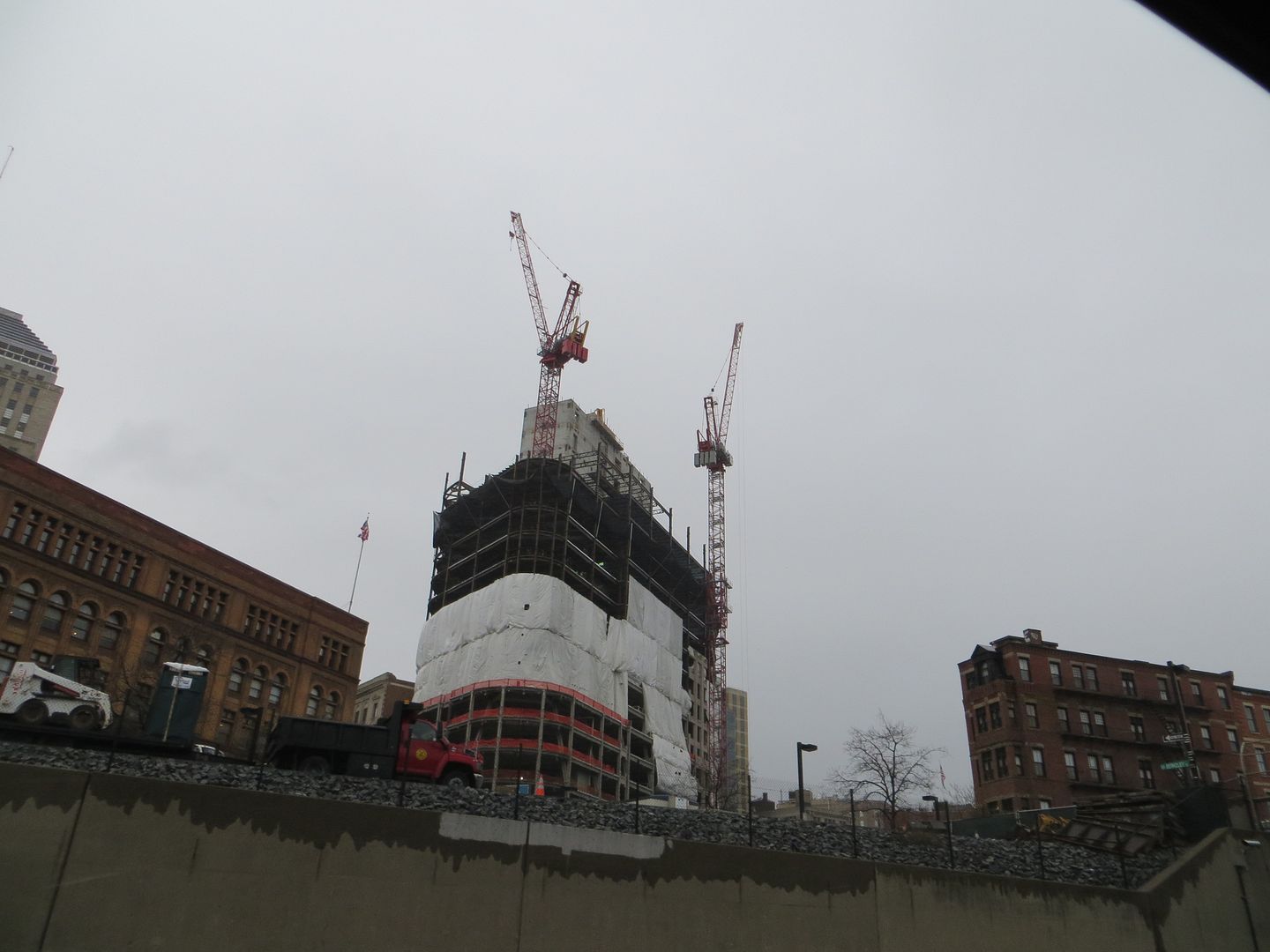Re: Liberty Mutual plans major Boston expansion
Disclaimer, wrote this tired, may be rambling, not sure if it makes any sense
Single Taxpayer - no tax break
Married taxpayer - gets tax break (incentive)
Married people are stealing my money by paying proportionately less income taxes
hypothetical small developer - no tax break
hypothetical large developer - tax break (incentive)
Large developer stealing money by paying proportionately less property taxes
I don't see the difference.
Do I have to get married? No.
Does the Govt want me to get married? Yes -> tax break
Does developer have to develop land? No
Does the Govt want the large developer to develop the land? Yes -> tax break...
-------------------------------------------------
As for the capitalism discussion...Fan Pier is the direct result of capitalism. The value of the property has continued to increase w/o anyone doing anything with it. Thus Sicilian's gripes about land forever changing hands in the Fort Point/Seaport District. Capitalism says so what? It will develop when it becomes economically worthwhile to do so (i.e. make more money from development than from resale). Unfortunately for much of the seaport area this hasn't happened yet. Capitalism caused the 115 Million valuation. Capitalism is also why nothing was done with the property for so long...until the government made it economically profitable to do so (capitalism).
So the question is, are you pro or anti capitalism? Lets talk DTX hole for a minute as a microcosm of the economic recession in general.
1) capitalism causes overvaluation/speculation of a development site
2) economy falls and buyer is looking at large losses
3) buyer sits on property as most cost effective option
4) nothing happens till it becomes economically viable (which doesn't mean the buyer necessarily makes a profit, just that the losses from building/selling > sitting on it)
Despite the fact that it may now finally be beginning to begin to gain some traction again (don't jinx it), the question remains, if the property continued to be undeveloped, should the govt. have provided incentives? In reality this is just a localized version of the fundamental question that was raised in the Bank & Detroit bailouts, what do you do when capitalism screws up?
It's pretty clear historically that unfettered capitalism leads to bad things (great depression, great recession, child labor/high mortality rates during the industrial revolution, etc.). Sometimes this is due to rampant unregulated speculation (banks). Sometimes this is due to pure organizational laziness (auto industry). Sometimes this leads to larges swaths of land being overvalued.
The question is do you let these stupid businesses fail or the land stay undeveloped? Clearly doing so has a large negative economic impact, but capitalism says this is the way the market corrects itself. Or do you bailout/incentivize these businesses at the taxpayers expense? Clearly this has other repercussions on the economy.
Is there such thing as too big to fail, or to important to fail/go undeveloped? Does market correction take too long? Who knows? Without getting into the politics of one choice or the other, its clear that to a degree this is the cycle of under regulated capitalism.
Whether this is the way you think the economy should work is up to you. I'm not saying govt. regulation is always a good thing. Clearly some regulations create barriers that make development less cost effective, contributing to the problem of undeveloped lots. But, if you don't like empty lots, then I think you have to look at the govt. as possibly the only economic actor that can afford to be a proactive economic force.
Disclaimer, wrote this tired, may be rambling, not sure if it makes any sense
Single Taxpayer - no tax break
Married taxpayer - gets tax break (incentive)
Married people are stealing my money by paying proportionately less income taxes
hypothetical small developer - no tax break
hypothetical large developer - tax break (incentive)
Large developer stealing money by paying proportionately less property taxes
I don't see the difference.
Do I have to get married? No.
Does the Govt want me to get married? Yes -> tax break
Does developer have to develop land? No
Does the Govt want the large developer to develop the land? Yes -> tax break...
-------------------------------------------------
As for the capitalism discussion...Fan Pier is the direct result of capitalism. The value of the property has continued to increase w/o anyone doing anything with it. Thus Sicilian's gripes about land forever changing hands in the Fort Point/Seaport District. Capitalism says so what? It will develop when it becomes economically worthwhile to do so (i.e. make more money from development than from resale). Unfortunately for much of the seaport area this hasn't happened yet. Capitalism caused the 115 Million valuation. Capitalism is also why nothing was done with the property for so long...until the government made it economically profitable to do so (capitalism).
So the question is, are you pro or anti capitalism? Lets talk DTX hole for a minute as a microcosm of the economic recession in general.
1) capitalism causes overvaluation/speculation of a development site
2) economy falls and buyer is looking at large losses
3) buyer sits on property as most cost effective option
4) nothing happens till it becomes economically viable (which doesn't mean the buyer necessarily makes a profit, just that the losses from building/selling > sitting on it)
Despite the fact that it may now finally be beginning to begin to gain some traction again (don't jinx it), the question remains, if the property continued to be undeveloped, should the govt. have provided incentives? In reality this is just a localized version of the fundamental question that was raised in the Bank & Detroit bailouts, what do you do when capitalism screws up?
It's pretty clear historically that unfettered capitalism leads to bad things (great depression, great recession, child labor/high mortality rates during the industrial revolution, etc.). Sometimes this is due to rampant unregulated speculation (banks). Sometimes this is due to pure organizational laziness (auto industry). Sometimes this leads to larges swaths of land being overvalued.
The question is do you let these stupid businesses fail or the land stay undeveloped? Clearly doing so has a large negative economic impact, but capitalism says this is the way the market corrects itself. Or do you bailout/incentivize these businesses at the taxpayers expense? Clearly this has other repercussions on the economy.
Is there such thing as too big to fail, or to important to fail/go undeveloped? Does market correction take too long? Who knows? Without getting into the politics of one choice or the other, its clear that to a degree this is the cycle of under regulated capitalism.
Whether this is the way you think the economy should work is up to you. I'm not saying govt. regulation is always a good thing. Clearly some regulations create barriers that make development less cost effective, contributing to the problem of undeveloped lots. But, if you don't like empty lots, then I think you have to look at the govt. as possibly the only economic actor that can afford to be a proactive economic force.
Last edited:




